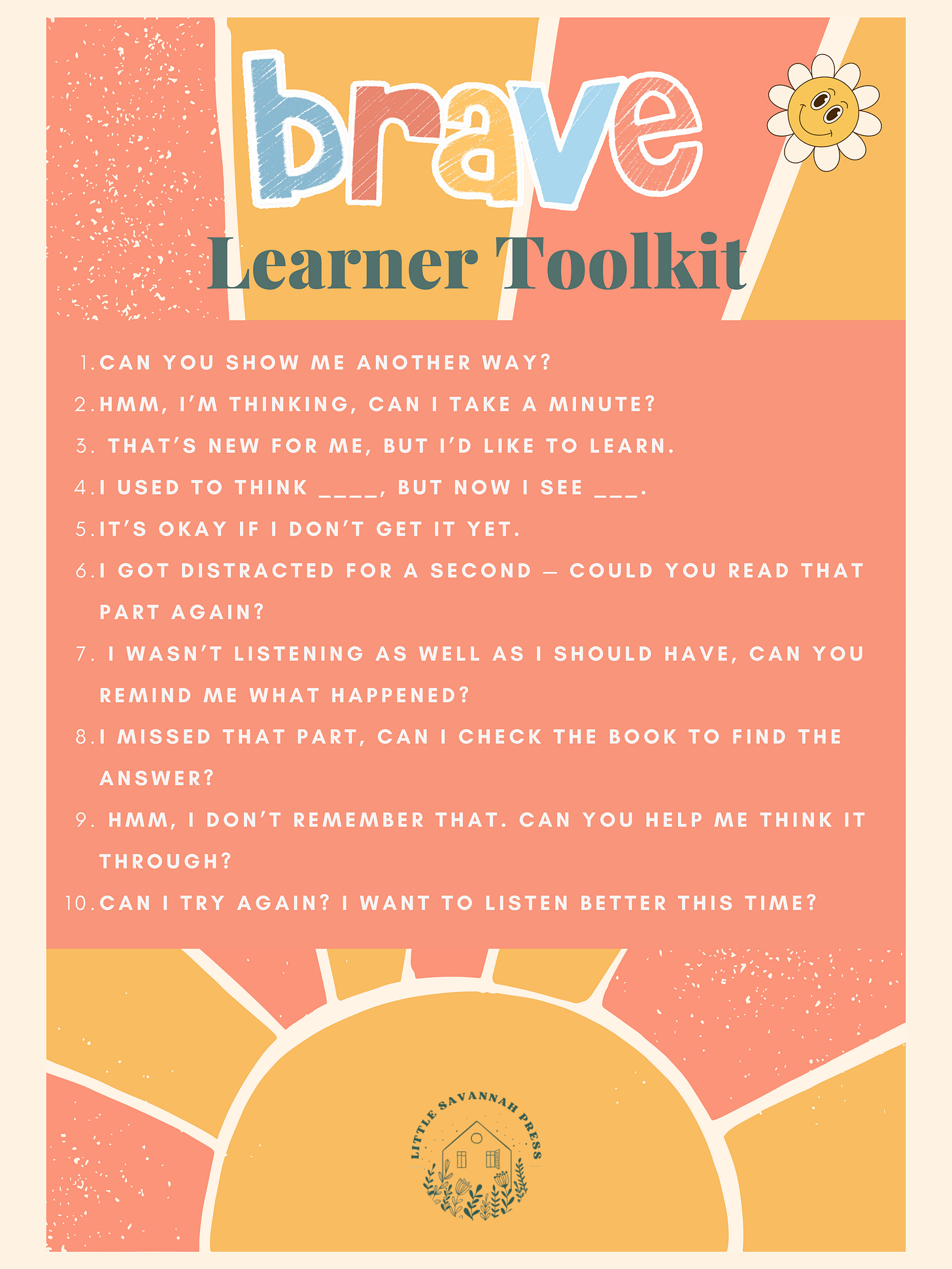Raising Brave Learners
Helping our kids build confidence, curiosity, and character at home.

I’ve noticed something lately with one of my kids. When they’re unsure of an answer, they sometimes ramble to fill in the blank, lip sync and hum along in music class while not really singing the words, or guess through a reading question they didn’t quite catch.
At first, I wanted to correct it. But the more I thought about it, the more I realized they weren’t being dishonest, they were trying to keep up. And I may have, both intentionally and unintentionally, created a dynamic where they want to a) impress me, and b) are afraid of getting it wrong. Also, there’s just the element of trying to look like they belong in the learning moment. And honestly? Haven’t we all done that too?
That’s when I started thinking about what it means to raise brave learners: kids who know it’s okay not to know. To be fair, I’ve pushed this child pretty hard because they are really smart, and have moved through their work really fast up to this point, but one thing I neglected in going at this pace was assuring them that it was OK to not know. Their discomfort in not knowing has become a weakness, because the best learners aren’t the one that go through the information fastest, it’s the ones that ask the best questions and who have a growth mindset.
At this age, I want my kids to know that confidence doesn’t come from having all the answers. It comes from being willing to ask good questions. Understanding that learning isn’t about getting it right the first time, but about staying curious, humble, and teachable.
So, to help my darling child to reframe some of these moments, I made a cheat sheet with some phrases they can use, and I wanted to share it with you guys too.
The Brave Learner Toolkit is a simple set of phrases your kids can use when they feel stuck or unsure. I’m pasting the phrases below, and a pretty PDF.
Can you show me another way?
Hmm, I’m thinking, can I take a minute?
That’s new for me, but I’d like to learn.
I used to think ___, but now I see ___.
It’s okay if I don’t get it yet.
I got distracted for a second, could you read that part again?
I wasn’t listening as well as I should have, can you remind me what happened?
I missed that part, can I check the book to find the answer?
Hmm, I don’t remember that. Can you help me think it through?
Can I try again? I want to listen better this time.
I’m hoping you’ll consider subscribing. Our TQR community gets first dibs to the podcast and any new resources I make and I’d love to have you join us.
It’s simple, but powerful.
Because the goal isn’t just to raise smart kids, it’s to raise secure ones.
Children who aren’t afraid to pause, admit what they don’t know, and try again.
That’s what bravery looks like in learning. And I think, as moms, we’re learning that too every single day.

